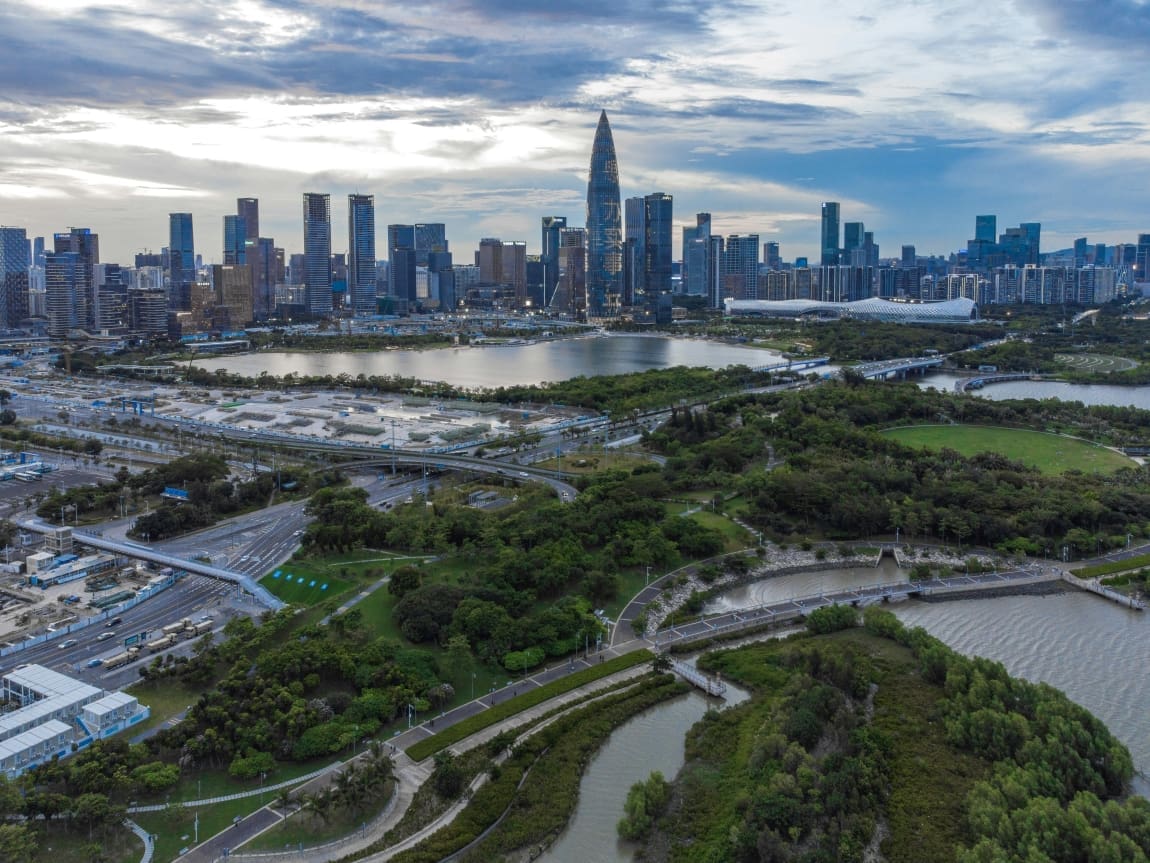Experts have identified 240 Chinese cities whose emission reduction are mainly benefiting from the carbon mitigation actions of other cities, whilst putting in less effort themselves.
Researchers studied the phenomenon across 309 Chinese cities using data from 2012 to 2017 – a period when China underwent economic reform and industrial transformation.
Constructing a city-level input-output model to assess carbon footprints, the researchers identified 78% of the cities as ‘outsourced beneficiaries’, depending on carbon mitigation from the supply chain. They further divided the cities into ‘strong’ and ‘weak’ outsourced beneficiaries, reflecting their development stages and industrial structures.
Publishing their findings today in Nature Cities, researchers from the University of Birmingham, University College London, and Tsinghua University, in Beijing, China reveal 65 cities as strong outsourced beneficiaries where their local carbon emissions still grew. In contrast, they define 175 cities as weak beneficiaries with larger outsourced mitigation efforts than local mitigation efforts.
Corresponding author Dr Heran Zheng, from University College London, commented: “We discovered a widespread trend among Chinese cities leveraging supply chain networks for carbon mitigation, indicating ‘outsourced beneficiaries’ behaviour when cities benefit from the mitigation efforts of upstream cities without comparable local efforts.
“Cities downstream of supply chains, such as high-tech cities, can effectively reduce emissions through technology and supply chain management. Our findings highlight the importance of nuanced government policies to address these differences between cities – this will help to promote a fairer distribution of mitigation responsibilities.”
The distinction between ‘strong’ and ‘weak’ is associated with a city’s development stage and industrial structure. Strong outsourced beneficiaries were often industrializing cities with more agriculture and light manufacturing, focusing for local economic growth.
In contrast, weak outsourced beneficiaries were mainly at the downstream of supply chains with services and high-tech manufacturing, which have stronger connections with upstream heavy industry cities and so as their mitigation efforts
Co-author Dr Yuli Shan, from the University of Birmingham added: “With China’s focus on clean energy, central and western cities rich in wind and solar resources are emerging as clean energy supplier – compounded by growing demand for electricity from eastern high-tech cities due to the rise of the digital economy. This can lead to an outsourced mitigation situation where cities benefit from other cities’ clean energy efforts without making a commensurate contribution.”
The researchers note that outsourced beneficiaries is a classic problem wherein a group providing itself with common goods, each member will have a strong tendency to contribute little or nothing toward the cost of the good, while grabbing its benefits.
Strong outsourced beneficiaries are found in energy cities and heavy industry cities, with agriculture and power as the dominant industries. Such cities should receive financial and technical support to transform outdated production capacity and turn them into weak free riders.
Conversely, weak outsourced beneficiaries with high-tech and service-oriented industries should ramp up investment in technological innovation and research to enhance industrial efficiency -transform theming into role models.
The experts add that effectively reducing emissions and acknowledging cities’ role in climate change mitigation require policies that are specifically designed to address the distinct challenges and opportunities of each city.
More information: Chengqi Xia, Heran Zheng, Jing Meng, Yuli Shan, Xi Liang, Jin Li, Zihua Yin, Minggu Chen, Pengfei Du, Can Wang, ‘Outsourced carbon mitigation efforts of Chinese cities from 2012 to 2017’, Nature Cities (2024); DOI: 10.1038/s44284-024-00088-8. Featured image credit: 李大毛 没有猫/darmau | Unsplash




